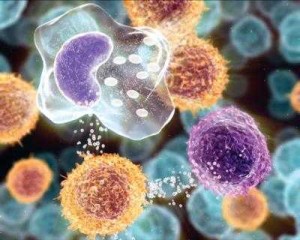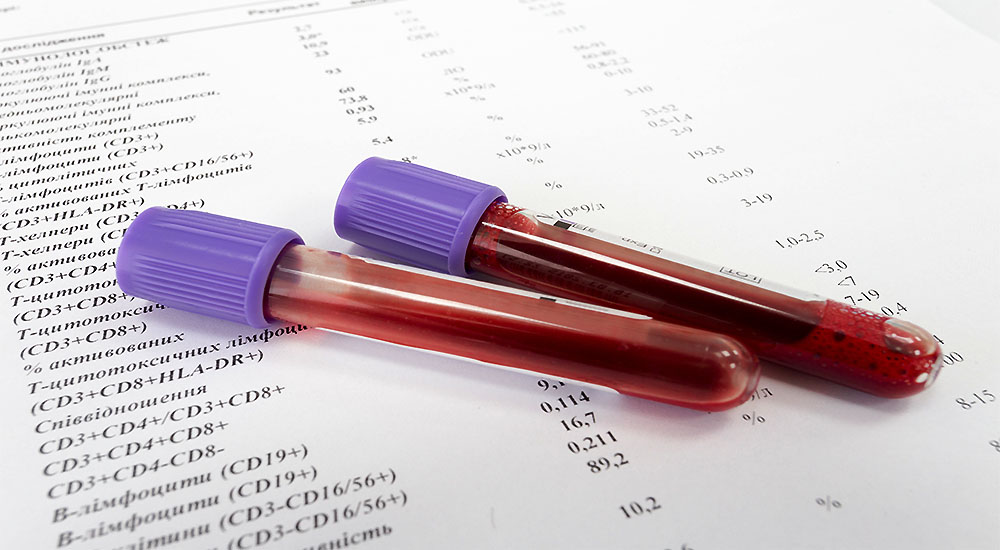Gluten Intolerance Report: If you have Diabetes, Read This!

Celiac Disease and Diabetes have Common Genes

Since our genes are not easily changed, does it condemn those so afflicted to develop these diseases, no matter what they do? Let me tell you about a recent research study and then I’ll give you my opinion…Mine is more optimistic!
A paper released today out of the United Kingdom detailed a study performed by researchers from the University of Cambridge and The London School of Medicine. The Juvenile Diabetes Research Foundation helped fund the study that analyzed nearly 20,000 tissue samples to look for genetic similarities between the two conditions. The researchers found strong genetic similarities and wondered if the diseases might have a similar environmental trigger.
An earlier study in the New England Journal of Medicine echoed that thought, raising the possibility that the protein gluten, already known to be the causative agent in celiac disease, may also trigger type 1 diabetes. [Hint: They’re correct!]
Both are Autoimmune Diseases
The two diseases may seem quite different: Type 1 diabetes causes the body to attack the pancreas, and blood sugar levels become dramatically affected resulting in a host of serious problems including blindness and amputations.
The celiac disease attacks the small intestine, compromising your ability to digest and absorb nutrients and it is responsible for creating over 300 diseases and conditions. So what do they both have in common?
Both diseases are autoimmune and therefore the result of a malfunctioning immune system. Your immune system is supposed to attack ‘bad guys’ like bacteria and cancer cells, not your own organs. But, unfortunately, that is exactly what occurs in autoimmune diseases in general and celiac and diabetes in particular.
While the researchers were surprised to identify seven areas on the genes that were shared by the two diseases, they agreed that more work was needed to pinpoint how the genetic and environmental factors combined to trigger the conditions.
Why are Diseases Related? We May Already Have the Answer
What if the answer was already known? I’d like to present data from the research of Dr. Alessio Fasano who hails from the University of Maryland’s Center for Celiac Research. Dr. Fasano discovered several years ago that when he took rats who were strongly predisposed to develop type 1 diabetes and created within them a more intact small intestine, they didn’t, in the vast majority, develop diabetes.
To elaborate, these particular rats ‘always’ developed type 1 diabetes – they were inbred for it in order to research the disease. Yet when Dr. Fasano gave them a substance to prevent a leaky gut (defined below) a full 2/3 of them did not develop diabetes.
A leaky gut is present in an unhealthy small intestine. It is too permeable (imagine a sieve with large holes when they are supposed to be very, very small) and thereby allows partially digested food and disease-causing organisms such as bacteria, parasites, and the like to leave the small intestine when in a normal small intestine they would not be allowed to.
The substance that Dr. Fasano gave to the rats prevented a leaky gut, that is all. When you put this data together with the study released today, it is clear that gluten IS a factor in the development of diabetes, not only due to the genetic link but because the gluten in the diet of someone who is gluten intolerant, has been confirmed to create a leaky gut.
Diabetes Successfully Prevented
The rats that Dr. Fasano worked with were genetically ‘hard-wired’ to develop diabetes -yet 2/3 of them did not. Therefore if genetics was ‘everything’ and it dictated what would happen to the body regardless of the environment, then all the rats would still have developed diabetes. The fact that they did not is very exciting. Why?
Because we can change our environment, we can change what we put into our mouths and we can heal a leaky gut. Changing our genes is not so easy (and yes, that IS an understatement!).
There are over 100 autoimmune diseases. While this study focused on celiac and diabetes, it could also have been discussing rheumatoid arthritis or multiple sclerosis or Hashimoto’s thyroiditis, just to name a few. Factually celiac disease and its trigger, gluten, is known to correlate with many other autoimmune diseases, over and above diabetes.
 What Should You Do?
What Should You Do?
If you or any member of your family suffers from an autoimmune disease, I highly recommend that you be screened for both celiac disease and gluten sensitivity. While there is much researching showing the correlation between celiac and autoimmune disease, the research is all but nonexistent showing the same correlation with gluten sensitivity.
However, here at Root Cause Medical Clinic, we see it with our patients often. We have had beautiful success with dramatically improving rheumatoid arthritis, psoriasis, Hashimoto’s, and fibromyalgia, to name a few, in patients with gluten sensitivity, not only celiac disease.
Our experience leads us to firmly believe that any patient with an autoimmune disease in themselves or in their family would benefit greatly from an effective lab test that evaluated both celiac and gluten sensitivity.
Are You ‘Afraid’ to Find Out if You’re Gluten Intolerant?
If a small voice deep inside you answered “Yes”, I understand how you feel. It may seem overwhelming to eliminate gluten from your diet. But let me assure you of something.
First, the amount of improvement you will see in your health will completely dwarf any inconvenience or effort that being gluten-free requires.
Second, as difficult as you think it will be, in hindsight I assure you that your concern is much greater than the actual reality of doing it. How do I know? This is what I do. I work with many hundreds of patients and we have gone through this journey together. When it’s all said and done, the most common responses I hear are: “That wasn’t so hard.” and, “It was so worth it to find out.” “I would never go back to eating gluten – it’s poison for me.” So, as I like to say to new patients, “Don’t overthink it. Just get tested and if you’re gluten intolerant we’ll take it from there – one step at a time.”
I hope you find this information helpful. Please feel free to contact me with any questions you may have.
Do you need help with your health?
We have the diagnostic and testing tools, the clinical experience, and a different medical approach to discovering the root cause of why you have the symptoms that are bothering you. As long as you are ready to make some dietary and lifestyle changes, we can help you. We will "hold your hand" through the changes, step by step, to make each step an easy one. We are located in Clearwater, FL, at 1000 S Ft Harrison, at the corner of Ft. Harrison Ave. and Magnolia St. There is plenty of parking space directly accessible from Ft Harrison. If it is not convenient for you to come to Root Cause Medical Clinic, we offer telehealth/telemedicine consultations to residents of certain states. Call us for details.
Contact us for a Consultation – Call 727-335-0400

Dr. Vikki Petersen DC. CCN
Founder of Root Cause Medical Clinic
Certified Functional Medicine Practitioner
Dr Vikki Petersen is a public speaker, author of two books, several eBooks and creates cutting edge content for her YouTube community. Dr Vikki is committed to bringing Root Cause Medicine and its unique approach to restoring health naturally to the world.
Ask a Doctor
Have a health concern you'd like to speak with a doctor about? Or just want clarity on a subject? Ask Us!

 What Should You Do?
What Should You Do?
